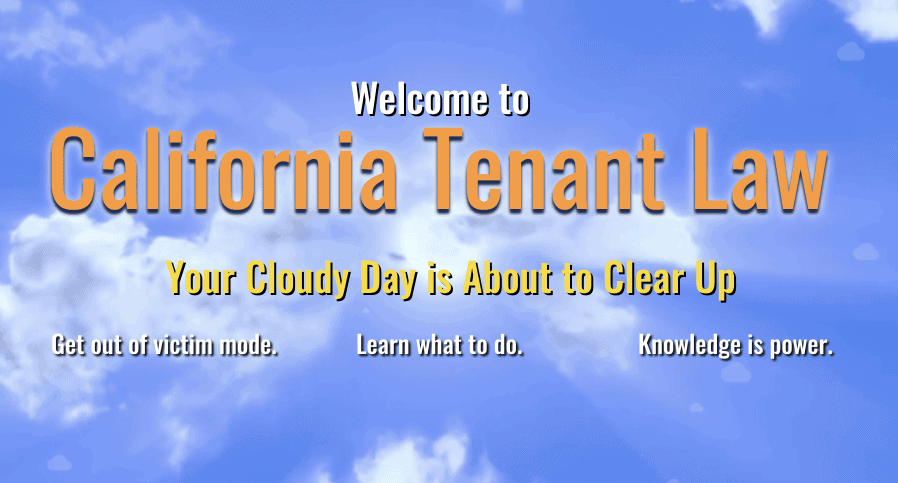☏ Call the Experts: 951-659-1234
Tens of thousands of clients since 1980
Protecting Renters’ Rights Since 1980

☏ Call the Experts: 951-659-1234
The Renters’ Rights Online Legal Help Clinic
Tens of thousands of clients since 1980
WHAT ARE YOUR RIGHTS?
Landlords often bully and lie to you to prevent you from knowing or using your rights.
Rumors of renter rights abound, making you unsure of what to do. Some laws are unclear, or apply in one city, but not another. Many lawyers don’t know what to do, so they tell you to just give up. That’s no answer.
The law is not a place to guess. You need to know. It is also not a place to “wait and see.” Taking the right steps as early as possible is critical to your goals. If you wait and see, the “light at the end of the tunnel” could be the headlight of an oncoming train. Don’t take that risk.
What can you do?
a. Find out how things are supposed to be, so that you can
b. Identify where the real problems are, and then
c. Take effective action to correct them.
The purpose of this website is to clear the air, take away those clouds of trouble and doubt, and help you achieve what you want.
“Before you spend a dime on legal help, you want to know if you have rights, if you have a case, and how it all goes. These free legal pre-consultation videos are intended to answer those legitimate questions. This free legal information is recommended before your consultation.
You may need a consultation to learn the specifics of your situation—with an explanation of your rights, strategies, court procedures, coaching, and more. Our paid legal services will address your needs. There are no paralegals giving information as many other low-cost services offer. These consultations are ONLY with an experienced lawyer who specializes in landlord-tenant law representing tenants.
Your cloudy day is about to clear up.”
– Ken Carlson
California Tenant Law provides free information and links for you to review, as well as paid legal services by Ken Carlson and his team.
California Tenant Law also provides a lawyer directory for finding lawyers near you.
You are encouraged to review the free legal advice before you have a consultation, so that you understand the background of the issues you face and can better focus on what you need to know.
“The purpose of the law
is to prevent the rich
from always getting their way.”
– James Madison, 1787










